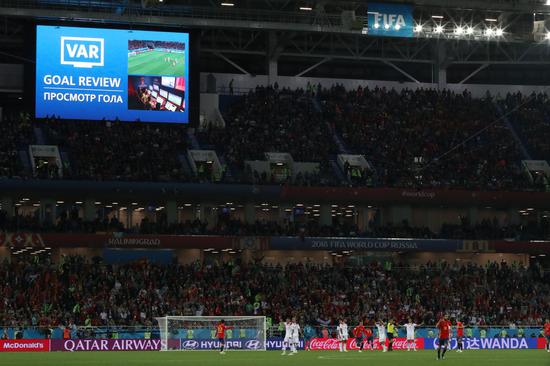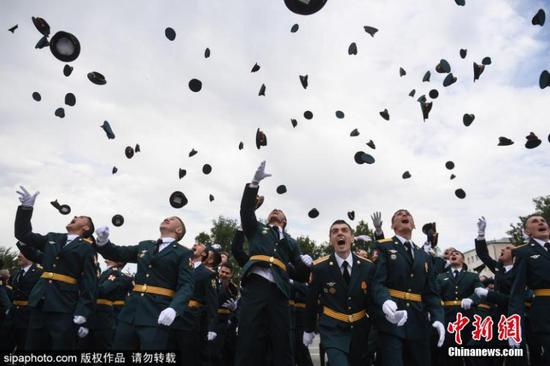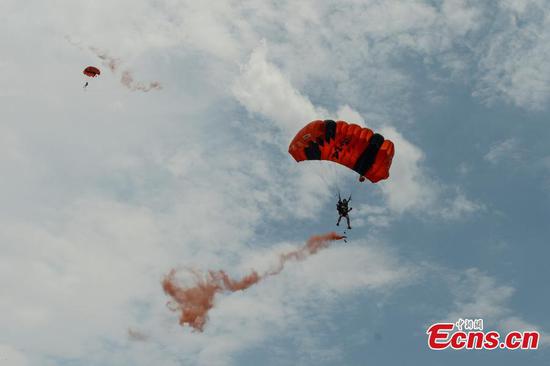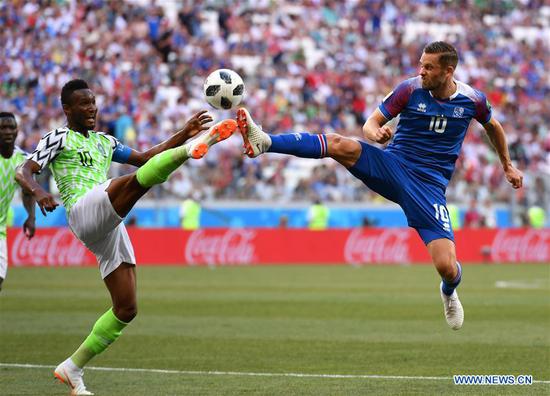
DgkOLtVW0AA2RlJ
USA Today on Saturday published an article commenting on the role of VAR (video assistance referee) at the 2018 FIFA World Cup in Russia and came to a conclusion about the tech: it's not doing well and is making one of the world's most important soccer tournaments worse, not better.
USA Today picked 12 cases of judgment assisted by VAR in the past 10 days of the World Cup. They said only six of the judgments were correct while the other six were controversial, or incorrect.
The U.S. media outlet pointed out two major problems of the VAR team in Russia. The first problem was that the process was to slow. Every time the referee heard instructions through his headphones, he would first suspend the match, then run across half of the field to spend minutes watching the video. After that, he returned to the field to make his decision.
The other problem was that VAR encouraged the referees to be less decisive in their work. In many cases, when alleged fouls happened in the penalty area, the referee chose to do nothing if he heard no instructions in his headphones, believing the play was OK since the VAR team would alert him if a foul occurred.
USA Today said the most successful application of review technology was the use of goal-line technology. If VAR is really needed in the matches, there is no need for the referee to take a trip every time to watch the video, he can simply listen to the VAR team's decision in his headphones and make the judgment based on teamwork.
The VAR team was also blamed for failing to look at all disputed cases in every match. The technology was introduced to help the referee catch things that may have slipped past his field of vision. If the VAR team does not cover all possible cases, there may be no point allowing it to continue its controversial role in the tournament.


















































